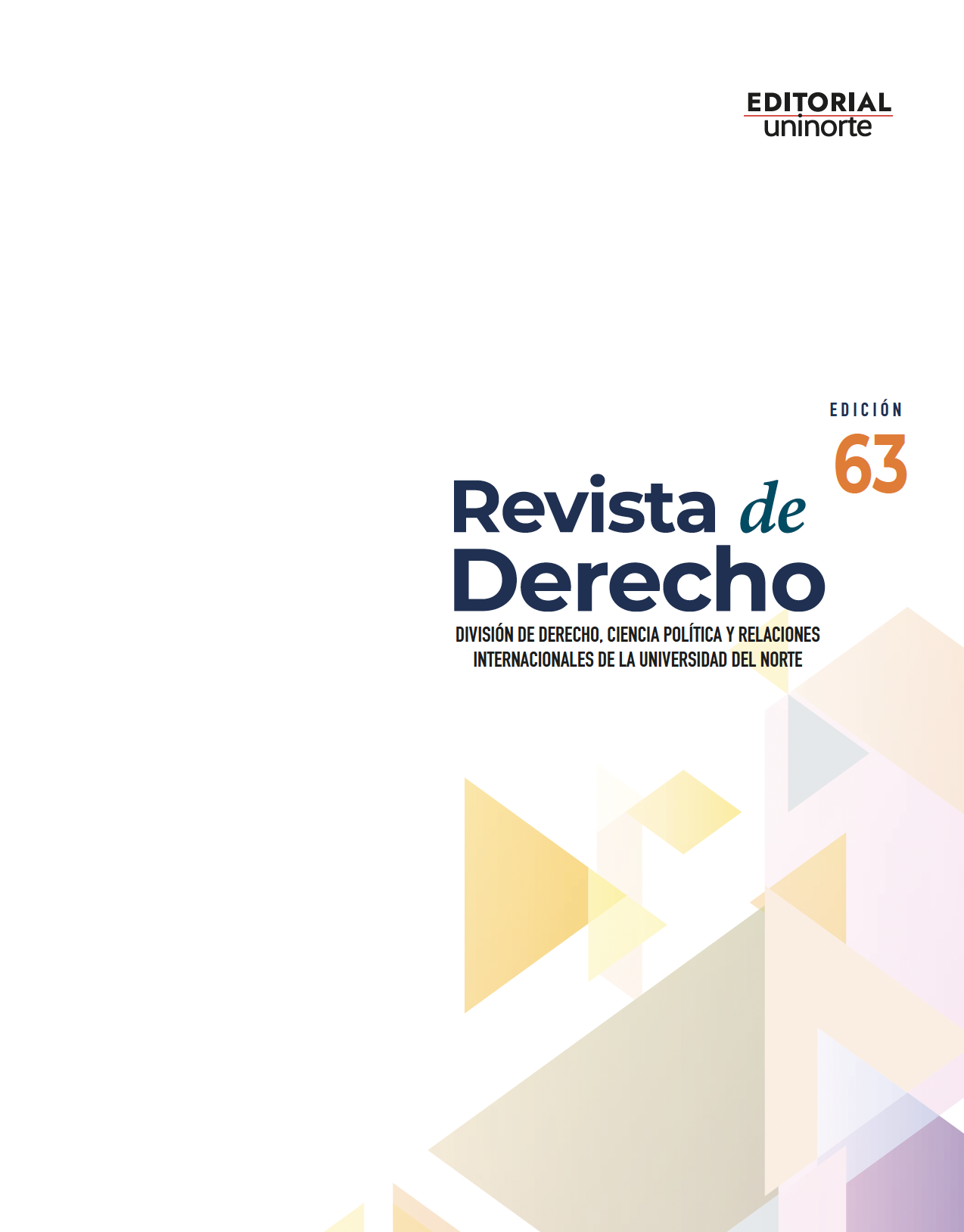Deber general de obediencia e ignorancia del derecho: un enfoque jurisprudencial
General Duty of Obedience and Ignorance of the Law: a Jurisprudential Approach
Keywords:
Constitutional Court, Judge, Jurisprudence, Legal theory, ObedienceAbstract
Many constitutions and statutes around the world contain a rule that seems obvious: everybody have the duty to obey the constitution and the laws. These kinds of rule make explicit what is known as the general duty of obedience to law. Along with these rules, there are others which establish the impossibility to use the self-ignorance as an excuse. The mixture of both categories highlights a theoretical and practical problem: the people could (or not) successfully navigate legal life without any knowledge about the law or, at least, with a very superficial one. This paper analyzes the general duty of obedience to the law in context of ignorance of the law. To achieve this, we analyze the jurisprudence of the Colombian Constitutional Court by dynamic analysis of jurisprudence. The results of this study suggest that the law cannot be exempted when someone claims to ignore it, at least from the perspective of Colombian jurisprudence. The theoretical implications of this are discussed. Finally, this study has theoretical, historical and practical value: theoretical because the topic, apparently clear, is an enigma which is a open empirical question; historical, because analysis of sentences normally relegated in the academic path are rescued; practical, because taking this this issue seriously can lead to reforming the way legal systems require people to obey and know the law.
References
Arena, F. J. (2021). Acerca de la relevancia de las investigaciones sobre sesgos implícitos para el control de la decisión judicial. En F. J. Arena, P. Luque y D. Moreno Cruz (Eds.), Razonamiento jurídico y ciencias cognitivas (pp. 157-185). Universidad Externado de Colombia.
Camacho-Castro, J. M. (2020). La obediencia del derecho. Escritos descriptivos y normativos. Corporación Universitaria Empresarial Alexander von Humboldt.
Camacho-Castro, J. M. (2022). Línea Jurisprudencial en 8 simples pasos. https://doi.org/http://dx.doi. org/10.13140/RG.2.2.30180.24963/1
Ceballos Ruíz, P. A., Sosa Castañeda, C. L. y Escobar Villamizar, J. C. (2013). El conocimiento de las normas básicas para la vida cotidiana: hacia una cultura de la legalidad en el municipio de Armenia. Aletheia, 3, 135-152.
Corte Constitucional de Colombia. (1993). Sentencia T-338 de 1993. https://www.corteconstitucional.gov.co/relatoria/1993/T-338-93.htm
Corte Constitucional de Colombia. (1994). Sentencia C-544 de 1994. https://www.corteconstitucional.gov.co/relatoria/1994/C-544-94.htm
Corte Constitucional de Colombia. (1996). Sentencia C-660 de 1996. corteconstitucional.gov.co/relatoria/1996/c-660-96.htm
Corte Constitucional de Colombia. (1997). Sentencia C-651 de 1997. https://www.corteconstitucional.gov.co/relatoria/1997/C-651-97.htm
Corte Constitucional de Colombia. (2006a). Sentencia C-341 de 2006. https://www.corteconstitucional.gov.co/relatoria/2006/C-341-06.htm
Downloads
Published
Issue
Section
License
Los artículos publicados en la Revista de Derecho y todo su contenido se encuentran bajo licencia Creative Commons CC BY. Creative Commons Attribution 3.0.








